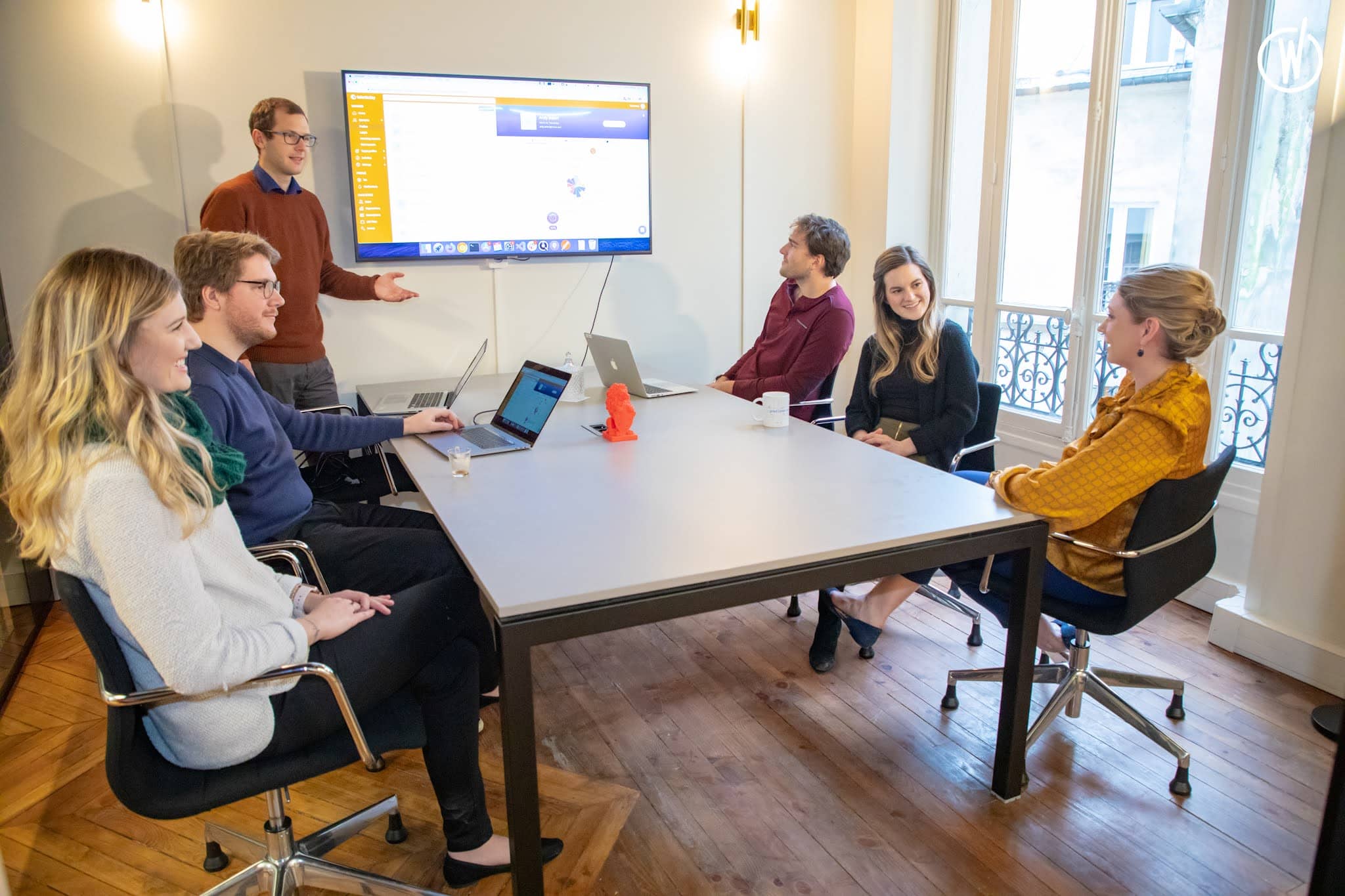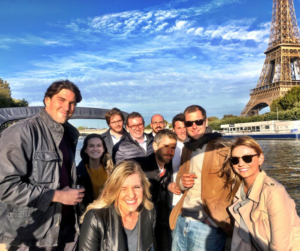For as long as I can remember, I have had an insatiable urge to maximize my potential for achieving a meaningful and happy life. My mom will recount stories of gritting through the parent-teacher conferences of my adolescence with my teachers cautioning her to put “less pressure” on me due to the intensity I brought to spelling tests and class projects. My mom would assure them that there was no pressure; it was all driven by a little fourth grader with an intense motivation for personal achievement.
Over the years, the devotion to fulfillment of potential never waned. I found myself driven by achievement, influence and responsibility, and I had successfully scouted out professional and educational opportunities to satisfy that. However, I approached a pivotal point in my personal growth when I was by all appearances in the prime of my career, building a life in the United States with a wonderful partner and our loving, loyal pets, leading teams of brilliant people while also pursuing a graduate degree to deepen my business acumen. Yet, somehow, something was missing. As I reached a point along the path I had been going down for years that was supposed to open me up to more in life – more opportunities, more success, more joy, it hit me.
I had been misdiagnosing my motivation. Somehow during the years of chasing personal achievement, my motivational needs evolved. With unique perspectives and education in my toolkit, my new driving force was combating complacency, seeking out new challenges and adventures. My previous solutions for happiness and fulfillment were no longer going to suffice. The cure was taking a hard look at not only who I was, but who I had become, and who I might become next, to truly identify the drivers and motivations that would lead me to a content and happy life.
Defining Motivation
Motivations are often defined as the desires and needs that help determine how an individual behaves. Examples of motivations can include external things, like receiving recognition for your work, or internal factors, such as working on projects that challenge you. When these different needs are met, we become more engaged. This leads to more energy, commitment and creativity, as well as higher levels of productivity and satisfaction.
Motivation is most often discussed in professional settings, and with good reason; companies are always searching for new ways to encourage their employees to achieve more. However, recent research from Gallup indicates that about 80 percent of the global workforce is not engaged in their work. The cost of this mass malaise goes well beyond dollars and cents, with effects that touch our lives outside of the workplace, as well.
Motivations Mean Something Different for Each of Us
In the spring of 2019, I had just finished earning my executive MBA and was ready for a new challenge. After more than a decade spent building my reputation as a detail-oriented marketing professional, I needed to add some variety and excitement to my career. The previous summer, Medix, the U.S.-based workforce solutions company I had spent my entire career with up until that point, had acquired Talentoday, a science-driven people analytics company headquartered in Paris, France. It was a bold step forward for a company I thought I knew like the back of my hand. Was this new opportunity the spark I had been searching for? Ready to take on a new adventure, my husband and I packed up our bags and our pets and made the move from Chicago, Illinois to Paris.
Throwing caution to the wind to cross the Atlantic was energizing and fulfilling for my need for personal challenge. Working with individuals who had different backgrounds than my own and taking on obstacles that I had never faced was by definition challenging, but thrilling at the same time.
At that time, I also came to the realization that this wouldn’t have been the case for everyone in this same scenario. Another professional who was instead motivated by consistency in procedures, attainable goals or predictable environments might have struggled with such a dramatic career change. To me, the lesson was clear. If most companies give employees frequent recognition, bonuses or other types of incentives, then why are the majority of us not engaged at work? This is where things get personal. In order to properly motivate someone, you need to know what it is that inspires them!
Share Your Motivations!
Whether you are setting professional or personal goals, there are the standard questions that are covered on a regular basis. How much do I need to earn to live comfortably? How hard do I need to train to hit my fitness goals? What’s my five-year plan?
Unfortunately, we very rarely ask ourselves direct questions about whether we are feeling fulfilled and, if not, what the factors are that are discouraging us. Only after identifying our core motivations can we turn this attention outward in order to inspire and encourage those around us.
Being transparent about our differences in motivations is an essential first step to better engaging with those around you on their own terms. Sharing individual needs and making that a regular part of the conversation is going to not only help your colleagues and loved ones feel seen and heard, but it’s a practice that promotes wellbeing in every facet of life.
People Change, and So Do Motivations
When I first moved to Paris, I was invigorated by my new environment. I was taking on a new industry in a new country with a new team. However, within a few months, I started to experience that feeling again that something was missing, that something was holding me back from true happiness. I knew I couldn’t give my best effort to those counting on me without figuring out what needs weren’t being met to ensure personal fulfillment.
Working at Talentoday, I thankfully was surrounded by resources dedicated precisely to this mission. I had access to an assessment built on the science of psychometrics designed to unearth insights on your personality, motivations and behaviors as an individual. When I had first stepped into my new role, I had taken the assessment to get a better sense of our product offering. To my surprise, I actually ended up learning a lot about myself along the way. After retaking it, I learned something new – people change, and so do our motivations.
While I was once motivated by change, my heart and science were telling me these needs had evolved. With a major life and career shift satisfying my previous need for challenge and excitement, my need for a sense of belonging grew. When I was back home in the U.S., it was effortless for me to pick up the phone to check in with my mom or grab lunch with a friend. Now, with an ocean between us, that was no longer possible. Once I realized what was missing for me in France, I focused on creating that sense of family I was longing for with my new teammates and put more effort into regularly keeping in touch with my loved ones back home.
Human beings are constantly evolving with their environment, and the same goes for our motivations. This is why it is important to continuously check in with ourselves, the people we work with and those who are with us at our most vulnerable moments to ensure that we are adjusting along with these evolutions. Changes in perspective can also lead to changes in priorities. Once you’re cognizant of this and make a point of keeping your finger on the pulse of these motivations, you’ll be more successful in regulating your environment, activities and life to achieve true happiness and fulfillment.
This article originally appeared on the Bonjour Sophy blog. Bonjour Sophy, a Talentoday partner, is a program that helps individuals discover their life mission. Learn more by clicking here.



